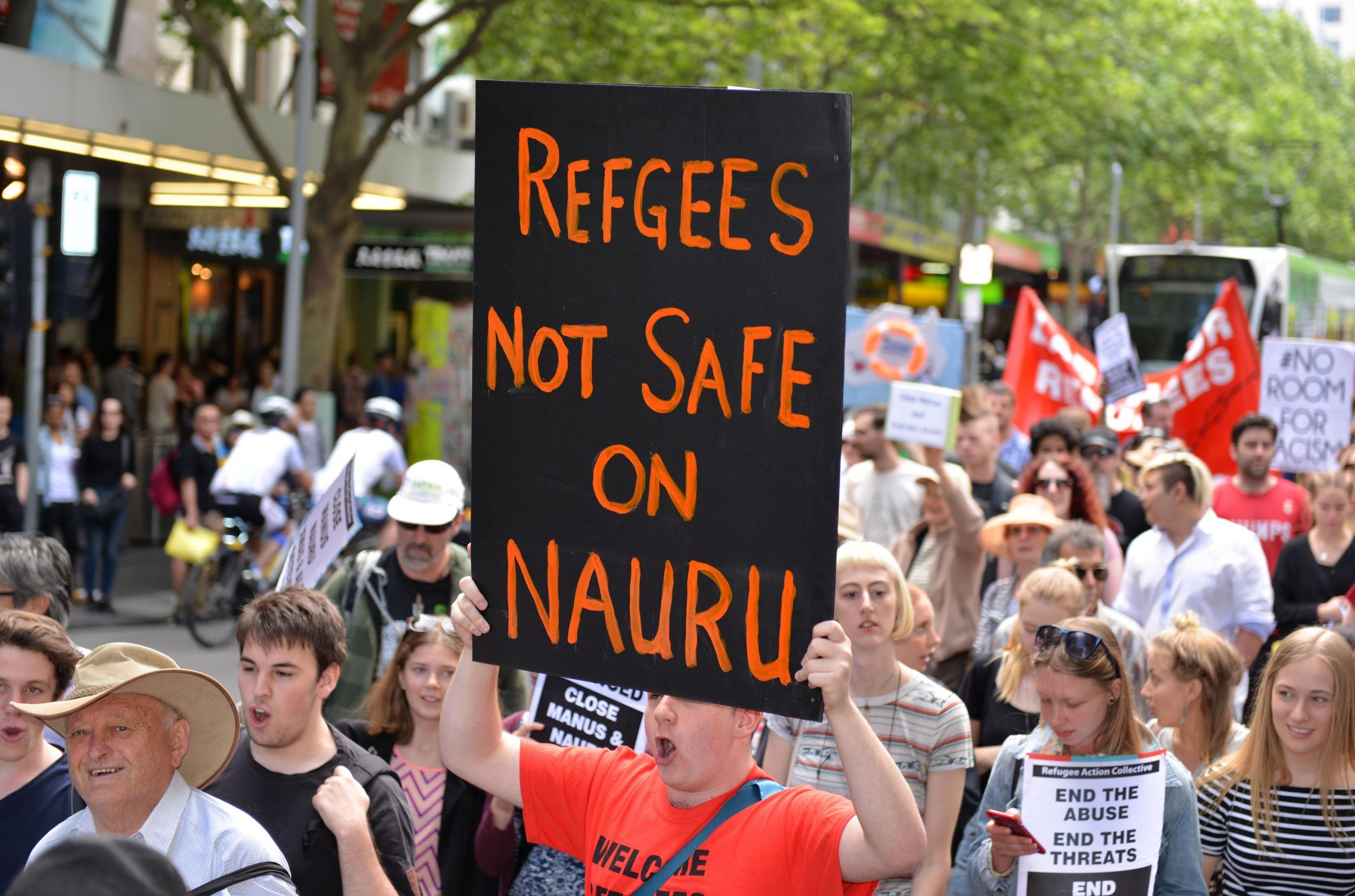Australian secrecy laws must be reviewed, says UN investigator
Doctors claim they are being stopped from speaking publicly about child abuse on the Pacific island of Nauru

Australia’s government has become increasingly secretive through a range of new laws, including a gag on officials speaking out about conditions at an Australia-run immigration camp in Nauru, a UN human rights investigator said.
Michel Forst, the UN’s Special Rapporteur on human rights defenders, recommended that Australia review its secrecy laws, including the “stifling” Border Force Act, to remove provisions that contravene human rights principles.
The Attorney-General’s Department said Mr Forst did not present a balanced view, but that the government would consider his recommendations.
Australian doctors have initiated a court challenge to the Border Force Act, which they argue gags them from speaking publicly about child abuse and other threats to asylum seekers and refugees held in the Pacific atoll nation of Nauru.
The law was introduced last year as part of a widely criticised policy of sending all asylum seekers who attempt to reach Australia by boat to Nauru or to the South Pacific nation of Papua New Guinea.
The Australian military-run Operation Sovereign Borders, which rankles Indonesia and human rights advocates because it involves turning back boats and rejecting refugee applications at sea, is shrouded in secrecy.
The Border Force Act makes it a criminal offence punishable by two years in prison for a broadly defined “entrusted person”, such as a Nauru doctor, to disclose “protected information”.
Journalists are also at risk of prosecution for abetting such an unlawful disclosure.
Journalists are all but barred by Nauru’s government from visiting the 1,159 asylum seekers and refugees who live among 10,000 local residents on the tiny island.
Amnesty International on Monday released a report on Nauru, which it described as an open-air prison where conditions endured by asylum seekers and refugees amounted to torture.
On Tuesday, Australian prime minister Malcolm Turnbull rejected the London-based human rights group’s description of deliberate and systematic torture on Nauru as “absolutely false”.
Mr Forst said he had been assured by government officials during his two-week visit to Australia that no one had yet been charged under the Border Protection Act.
“This may well be the case, but the Act’s existence and government actions aimed at censoring and intimidating advocates has had a chilling effect on the disclosure of information about violations in off-shore processing,” the Frenchman wrote in his End of Mission Statement.
The Australian Law Reform Commission, a government agency that reviews Australia’s laws to ensure they are just and efficient, recommended in 2010 that secrecy laws be scaled back.
Mr Forst found an “intensification of secrecy laws” since then, particularly in the areas of immigration and security.
AP
Join our commenting forum
Join thought-provoking conversations, follow other Independent readers and see their replies
Comments
Bookmark popover
Removed from bookmarks